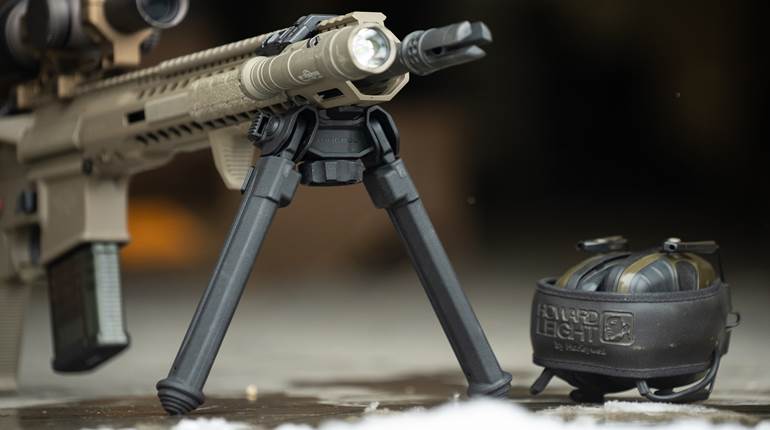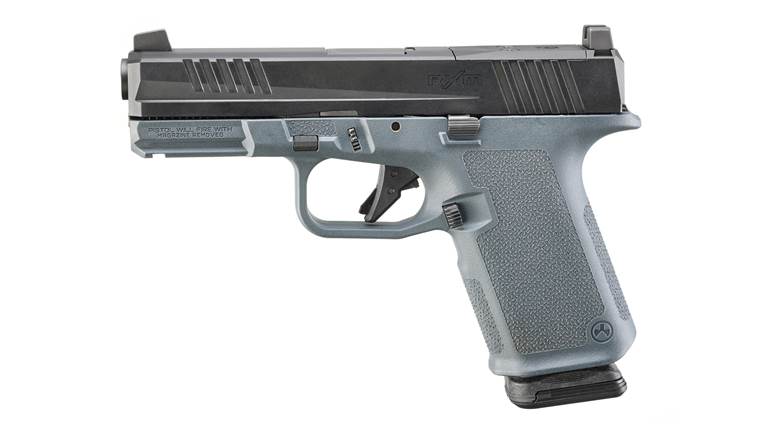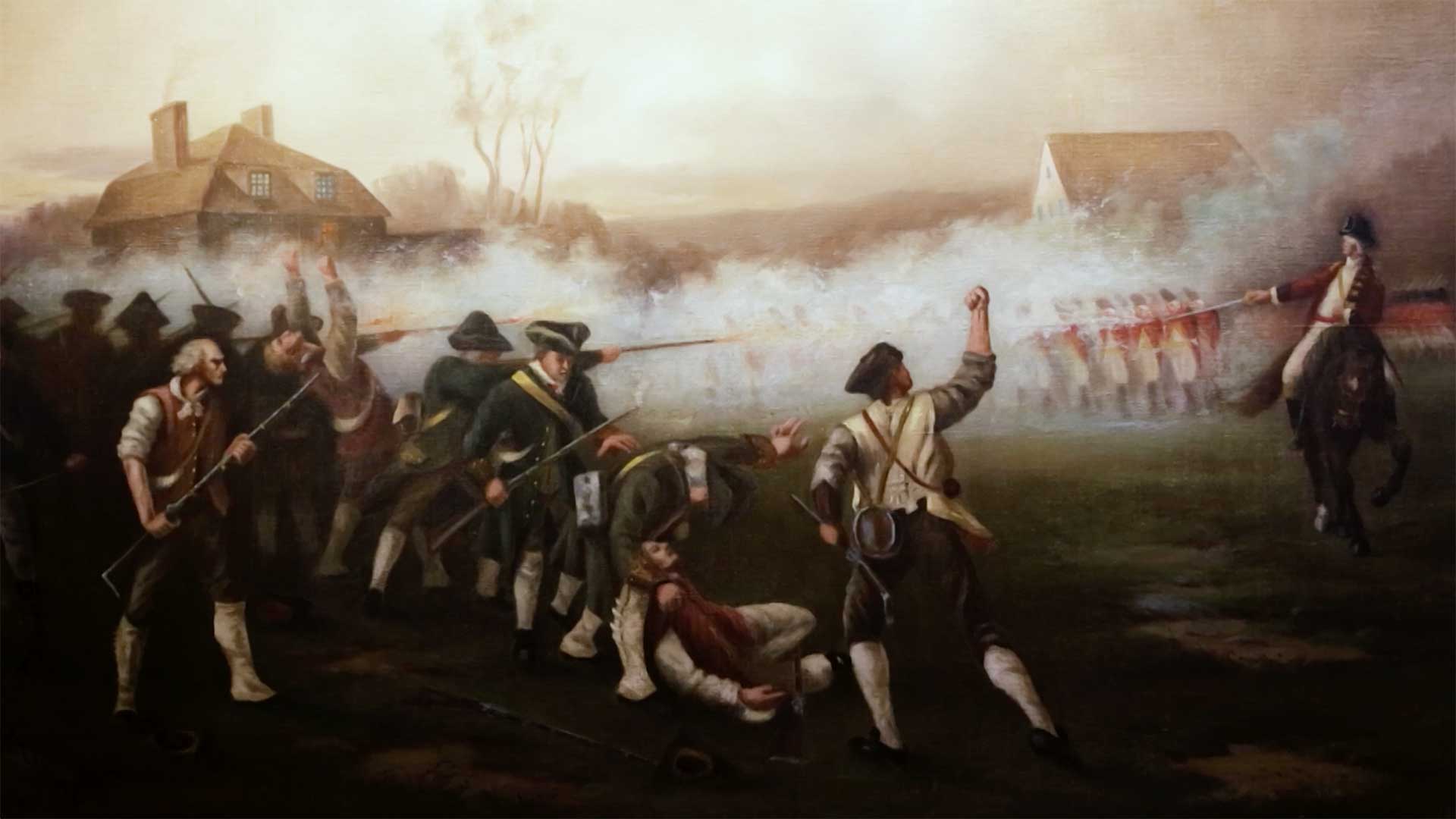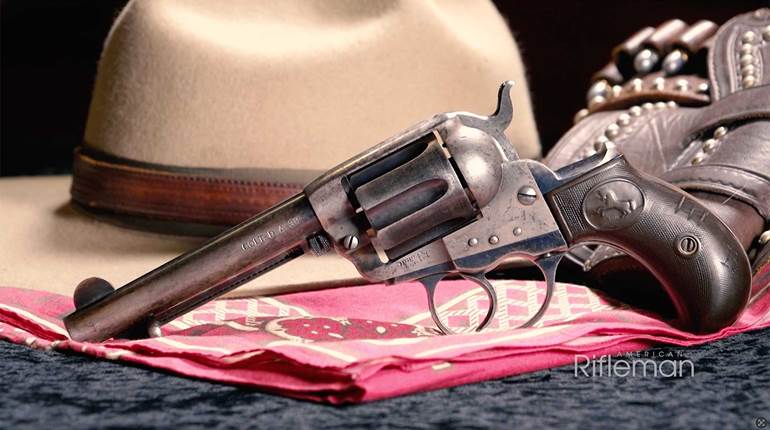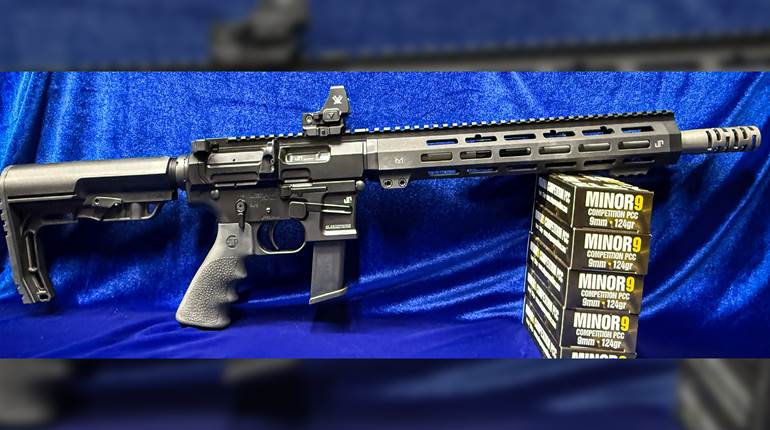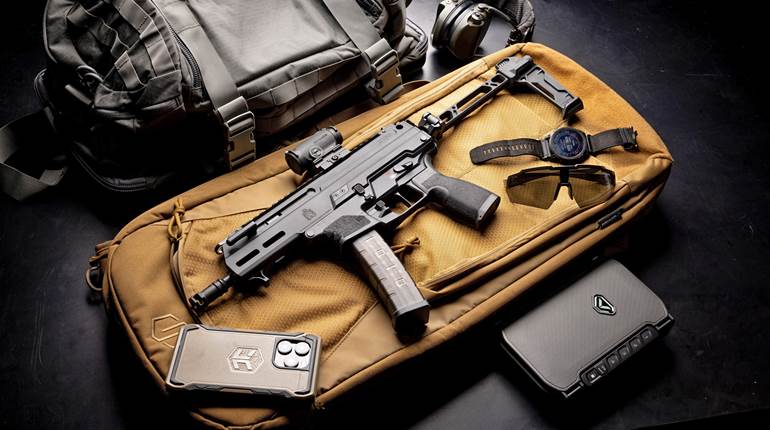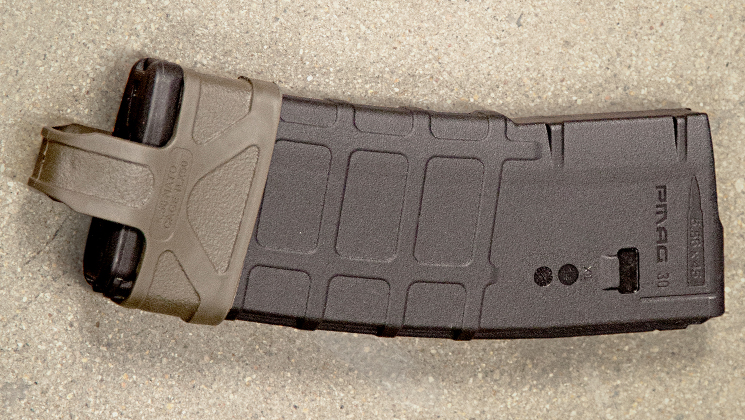
This article, "The Magpul Story," appeared originally in the September 2015 issue of American Rifleman. To subscribe to the magazine, visit the NRA membership page here and select American Rifleman as your member magazine.
Richard Fitzpatrick was serving with Alpha Company, 3rd Recon Battalion in the U.S. Marine Corps in 1991 when he first started thinking about reinventing a common military field expedient dating back to Vietnam.
He was one of the many infantrymen who used duct tape and parachute cord to fabricate loops attached to the bases of rifle magazines, making them easier to remove from ammo pouches and to control as they were turned 180 degrees for insertion into rifles. In the late 1980s, the standard-issue “ALICE” magazine pouches tended to be oversize and would swallow up all but the top half inch of a magazine. That made paracord loops essential so a soldier could get a grip on the magazine when under stress.Fitzpatrick first tried gluing pieces of rubber tubing together to make a prototype, but they didn’t work well enough to suit him. Still, the idea kept turning over in his mind. In 1997, a few years after he left the Marine Corps, a solution occurred to him. He decided to try a dual friction band. He played with the idea in his garage in Colorado. It worked.

He patented the idea and used his savings to pay for a small injection mold so he could manufacture parts in Erie, Colo. The original mold was built from a simple drawing. Fitzpatrick didn’t have the money to pay for engineering changes if the final part for the mold was incorrect. He was all-in. Luckily, the first samples came back perfect—so perfect that when the mold was finally replaced a decade later, no adjustments had to be made from the original.
Fitzpatrick named the loop the “Magpul” for “MAGazine PULL.” At the time, his intention was to simply make a series of Magpul loops in different calibers. He first introduced the product at the 1999 NDIA (National Defense Institute Ass’n) Small Arms Symposium in Parsippinay, N.J. He said it was met with a lot of interest but no orders.
While Magpul initially focused on a military contract, many of its first sales were from discretionary unit purchases within the branches of the U.S. military, from individual sales via its website and through dealer sales at trade shows. Bureaucracy moves slowly, but individuals who shoot in competitions and some in the military were finding Fitzpatrick’s solution to be one they needed.

The real growth of the fledgling company would come when it focused on education rather than direct advertising. “A classic example of this was a 24-page booklet titled ‘Advanced Tactical Reloading’ that we included with every package of Magpuls we sold,” said Fitzpatrick. “It had over 60 illustrations in it and was very detailed. Because of this detail, users became experts on the product and went on to become ambassadors for Magpul.”
Roots In Freedom
Fitzpatrick’s idea is a classic example of the ingenuity for which Marines, particularly, have a reputation. And as he grew the company, he would come to rely on another quality that has always been so key to the Corps’ approach to its missions that it serves as its official motto: Semper Fidelis—Latin for “always faithful.”
While he could not have foreseen, for example, that some of his company’s products would be ruled illegal for sale by the state of Colorado, Fitzpatrick decided that as Magpul grew, it too should have a creed that would serve to keep its mission clear and the company’s identity fixed on sound principles.
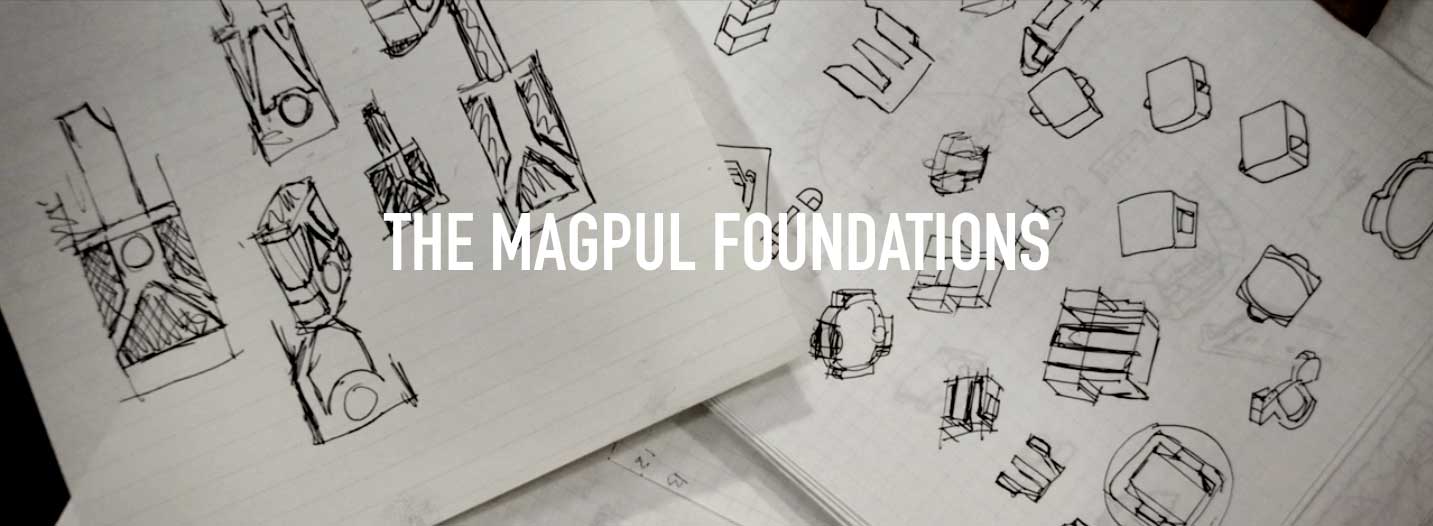
To do this, Fitzpatrick began creating what he calls Magpul’s “Foundations.” They are a series of principles based on action. They outline a creative and critical way of thinking that would benefit anyone looking to start a business or simply trying to get a company back on track.
Foundations started as a series of quotes the company used to maintain focus as it grew. “In 2007, during a website redesign,” Fitzpatrick said, “we added the Ayn Rand quotes, along with an explanation of why each quote matters to Magpul and then published it as the guiding philosophy behind the company.”
Some of the quotes have been a little controversial, such as: “Build what they need, not what they want.” Fitzpatrick explained that people often can’t articulate what they really want, but that if you listen and think critically, you can develop what they really need.

In a section of Magpul’s Foundations titled “Annoy the Establishment,” Magpul says, “Just as America’s Founding Fathers sought to promote individual rights and freedoms over those of the collective, Magpul also stands on the side of the individual. The natural enemy of the individual and innovation is the establishment and bureaucracy (which literally means ‘the power of the desk’). When we are annoying the establishment, we know we are effectively upholding our principles.”
According to Magpul’s leadership, those in government procurement have quoted the “annoy the establishment” line back to them more than once, but that’s fine with them. Their view is if they make a solid product it will sell.
Another part of its creed, under the subhead “Profits Are Not Evil,” states: “Magpul’s view on profits (and money in general) is summed up in the following quote by Ayn Rand: ‘Money is the material shape of the principle that men who wish to deal with one another must deal by trade and give value for value.’”
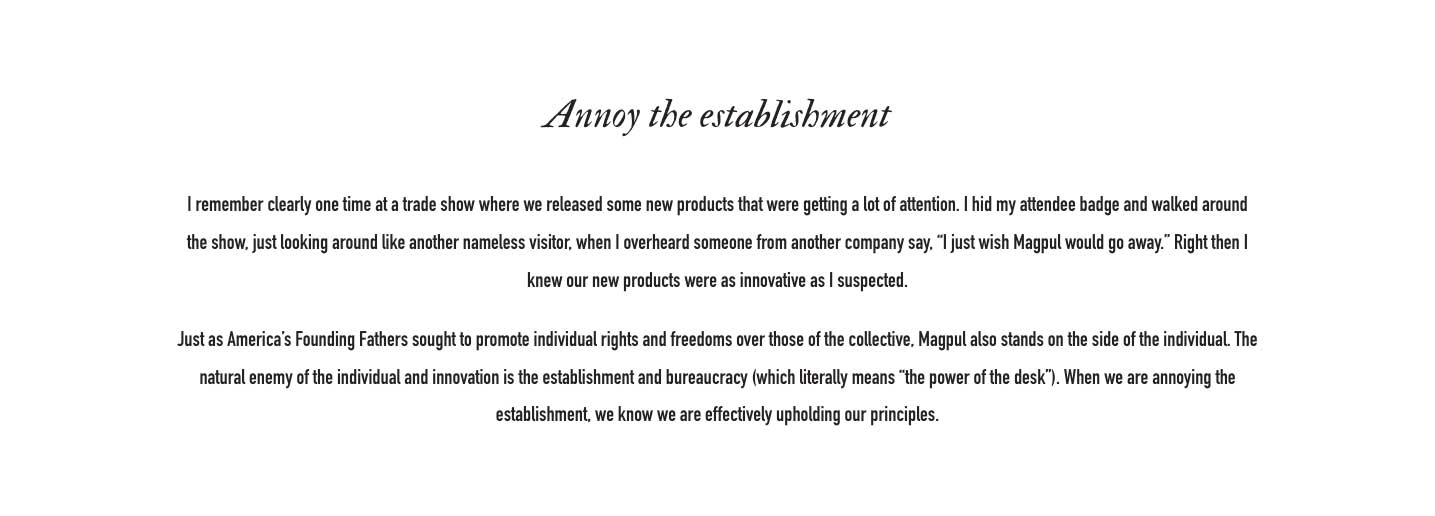
This quote is from Rand’s book Atlas Shrugged—published in 1957, the novel depicts a dystopian United States, wherein leading industrialists begin vanishing from society in response to oppressive regulations. The industrial leaders in the novel go to a secret society based on honest commerce that’s free from the bureaucrats who feed off the hard work of others. Rand placed the secret society in Colorado’s mountains.
Fitzpatrick said, “The irony in Atlas Shrugged, where the railroad employee said, ‘We can’t lose Colorado. It’s our last hope,’ was not lost on us. We’re openly pro-Laissez-faire capitalism, individual rights and personal responsibility. Outside of that, we purposely stay out of individual political commentary or political endorsements, as that is not our area of expertise.”

The last part of its Foundations covers what Magpul calls an “Unfair Advantage.” Fitzpatrick says this is an abbreviation of the old military saying: “If you show up for a fair fight, you are unprepared.” He says this as a nod to the general U.S. Marine Recon culture.
Obviously, someone with such a clear vision isn’t going to stand for his products being banned for ideological reasons.
The Defining Moment
In December of 2012, Magpul Industries was preparing to break ground on a new state-of-the-art facility in Colorado. Magpul’s PMAG magazines, AR stocks, grips and other products were in high demand. Magpul had, by then, grown past 200 employees, and the future looked bright.

But then the state’s Democratic-led legislature and its governor, John Hickenlooper, decided the way to stop sociopaths from taking advantage of “gun-free zones” was to restrict law-abiding citizens’ freedom. At the time, Colorado’s Senate President, John Morse, stood on the Senate floor and argued that new gun restrictions were needed as a way of “cleansing a sickness from our souls.”
Fitzpatrick said, “The magnitude of what was being proposed forced us into the political arena almost immediately. We had an economic defense that could be mounted against the bill, whereas the arguments that should have held more weight—those of liberty—were being ignored by those in power.
That said, the decision to uproot and leave Colorado was not made lightly. There were a lot of conversations internally about this, and a lot of sleepless nights, but in the end, we all agreed that holding true to our principles was the only thing that felt right, whatever the outcome or threat to the business.”
Magpul, and other companies in the state, responded to the emotionally charged, anti-gun rhetoric by saying they’d be forced to take their jobs out of Colorado if the state banned the sale of some of their products.

A lot of freedom-loving Coloradoans also protested the proposed gun-control legislation. Many also pointed out that all the facts show the proposed Second Amendment infringements wouldn’t stop the bad guys, but, if anything, would only enable them. Almost all of the state’s sheriffs also came out against the ban.
The legislature and governor, however, went ahead and banned so-called “high-capacity” magazines (in this case those holding more than 15 rounds), required “universal” background checks and much more. After the ban passed, but before it went into effect, Magpul instituted what it called “the Boulder Airlift,” a massive effort to produce and distribute as many so-called “high-capacity” magazines as it could before they were made illegal for sale.
Then, after the magazine ban went into effect, Magpul made good on its word. After a detailed search for new locations, the company announced that Magpul was “moving operations to states that support our culture of individual liberties and personal responsibility.”
He then explained that Magpul was relocating manufacturing, distribution and shipping operations to Cheyenne, Wyo. Magpul’s corporate office was moved to Texas. That state’s governor, Rick Perry, quickly gave Magpul a big Texas welcome. In a statement, Perry said, “In Texas, we understand that freedom breeds prosperity, which is why we’ve built our economy around principles that allow employers to innovate, keep more of what they earn and create jobs.”
Magpul, however, has retained a limited presence in Colorado. Duane Liptak, director of product management and marketing for Magpul, said, “Magpul is committed to maintaining an operation in Colorado to ensure the company is supporting lawful gun owners in our native state.”
Innovation for the Future
The fight for freedom, of course, is ongoing in Colorado. But there is a moral to the story about Magpul. Without its steadfast adherence to its core principles, Magpul would have alienated much of its customer base and shattered its innovative philosophy; after all, if it had given in, its first thought wouldn’t be its customers’ needs, but would have been: Will the bureaucrats give their approval to this idea? That’s a European way of thinking, not an American one.

To this end, Fitzpatrick said, “At first glance, some people do not realize that Magpul is first and foremost a design and engineering company. Our product development structure is rather unique, because it blends end users with a great deal of experience (Magpul CORE) with innovative industrial designers and a formidable staff of engineers. This results in many disciplines, all interacting in a creative atmosphere that is best described as inspirational, with a healthy dose of checks and balances to keep things real.
“Even as we innovate, we place a great deal of emphasis on customer service,” Fitzpatrick said. “We keep things in-house so that when you do need technical advice or support, it’s coming from someone who is very familiar with our products and the way that they work. We also spend a lot of time on various social media outlets and forums, and this includes everyone from customer service to the CEO. We like to be able to answer questions in a setting that allows others to find the information.”
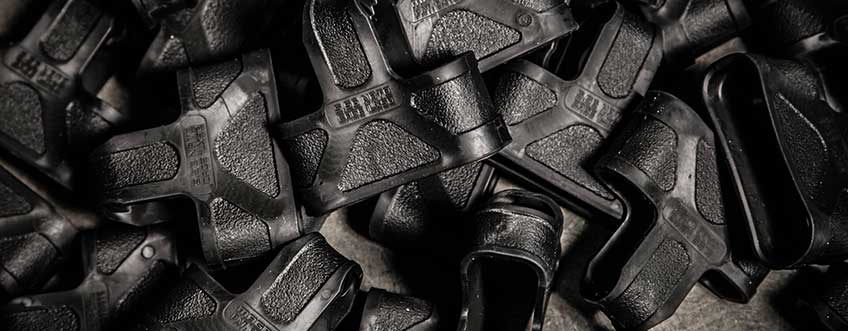
This innovative, customer-focused philosophy has pushed Magpul into complete gun design. When asked where Magpul is going with this, Fitzpatrick said, “The firearms designs made public, such as the Masada, Massoud, FMG9 (Folding Machine Gun) and PDR (Personal Defense Rifle), were primarily completed as design exercises with the goal of expanding our knowledge on building better accessories.
The lessons learned from these projects have lead directly to many products in the Magpul lines over the years. This answer is the same one we use when we are asked about the Ronin concept motorcycle we made a few years ago: ‘Learning to design everything lets you design everything better.’”
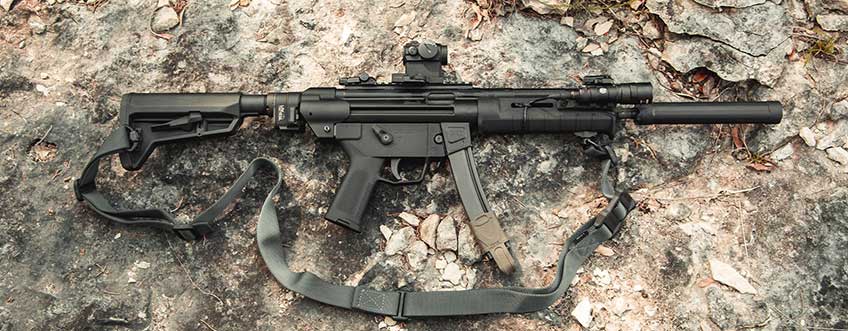
The Masada prototype rifle actually started out as a design concept display piece for an upcoming trade show that was just four months away. With a small room of designers, engineers and end users, they hashed out the requirements during a 10-hour-long session using nothing but a white board. Within four months (and in time for the show), they produced not one, but seven firing prototypes, each in a different configuration. The original Masada serial No. 1 remains unchanged and is kept in Magpul’s safe and still runs perfectly.
Now, with all this said, it’s worth noting that a man’s (or a company’s) character isn’t really known until tested. Rudyard Kipling put this maxim into poetry with “If” (“If you can keep your head when all about you; Are losing theirs and blaming it on you … you’ll be a Man, my son!”). So Magpul was tested, and like some other notable gun and gun-related manufacturers, it stood up for its principles and for us.













